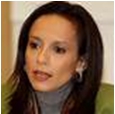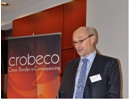October 27, 2014 / ELRA Secretariat
On 1st December 2014 the CROBECO closing conference will take place in the headquarters of the Law Society in London. The theme of the conference will be:
Subsidiarity and Proportionality in the Legal Space of a European Market on Real Estate
In the context of this conference, subsidiarity refers to the application of the lex rei sitae, as well as to the respect for the diversity of the national laws and for the identity of the foreign buyer. Proportionality entails that the requirements for the registration of a contract involving a foreign buyer should not go beyond what is necessary for national conveyance.
Together, they are the leading principles of CROBECO. Compliance with subsidiarity is ensured by:
1. Accepting deeds executed by notaries established in the country of the foreign buyer, entailing an explicit choice with regard to the application of his national contract law and the jurisdiction of the courts of his home country.
2. Offering foreign notaries different types of support:
- They can hire a local specialist to collect different types of official documents and to fulfill formalities;
- They are provided with information about the legal system of the country where the plot of land is situated;
- They are provided with examples of clauses that are required for the registration of a contract in a particular country.
Proportionality is ensured by choosing simple ICT solutions that ease the interoperability of the different national systems, which, from a technical perspective, remain unchanged.
As Professor Arruñada explained in the course of the previous CROBECO conference, existing regular requirements for registration in the land register should not be upgraded with specific requirements for foreign notaries (A summary of his presentation can be found here: www.elra.eu/prof-dr-arrunada-at-crobeco-conference
To assist foreign notaries, a network has been developed, that provides access to different types of professional assistance. The ICT functions of this system (named NETPRO) are generic and comply with the principles of good IT governance as described in chapter 9 of CROBECO’s Cross-border Conveyance Reference Framework (to be found here).
The system will comply with a prospective Online Certificate Status Protocol (OCSP), which is currently being developed by the Stork 2 project group, and with the use of a generic computer language for land registry output, which will be developed in the course of the IMOLA project.
At the moment, there are five countries participating in the CROBECO project: the Netherlands, England/ Wales, Portugal, and Spain. However, as the developed systems are generic, an extension, which would open the possibility for other EU countries to also participate in the project, can be easily achieved.
CROBECO does not aim to dictate conveyance systems at EU level; instead it simply intends to facilitate a European real estate market by offering systems that provide for the hire of support and the exchange of information and documents. At the same time, existing laws at national, regional, and local level are respected.
At the conference, the application of subsidiarity and proportionality in the participating countries will be explained. The NETPRO system will be demonstrated, the compliance with the principles of good IT governance will be evaluated, and the future extension to other countries and new ICT systems will be discussed.
The conference will be closed with a panel discussion about the question in how far a European real estate market can be promoted when the different national systems are respected.
For further information, please contact the ELRA secretariat at crobeco@elra.eu
SPEAKERS:
Diana Wallis

Diana Wallis will give her opinion on the CROBECO approach and will elaborate on the different pitfalls that a foreign buyer of real estate can encounter.
Ms. Wallis has over 15 years of professional experience as a litigation lawyer, primarily in London, where she developed a European cross border practice. From 1999 to 2012, Diana Wallis was a Member of the European Parliament and known as a leading member of the Parliament’s Legal Affairs Committee. Since that time, she has continued her activities in the European legal field, she is a senior fellow at the Law School of the University of Hull and an EU consultant and mediator with the Centre for Effective Dispute Resolution (CEDR); she also serves on a number of boards and committees of organizations connected with EU law and dispute resolution. She has been serving as President of the ELI since September 2013.
Beatriz Corredor

Beatriz Corredor will elucidate the policy of Spanish registrars on the EU principles of subsidiarity and proportionality and the advantages of a system that increases the trust of prospective foreign buyers on the Spanish real estate market. She will also refer to the development of the Spanish real estate market through the crisis and the lessons learned thereby.
Ms. Corredor is a Spanish lawyer and politician. She studied law at the Autonomous University of Madrid and has been registrar since 1993. She served as Minister of Housing from 2008 to 2010 and as Secretary of state for housing and urban affairs from late 2010 to 2011.
Ingmar Vali

Ingmar Vali will explain to what extent NETPRO complies with the principles of good e-governance as described in the Cross-border Conveyance Reference Framework of CROBECO in 2011. Furthermore, based on the Estonian example, he will give an overview of the possibilities surrounding the implementation of a more efficient verification of authority and identity of a foreign conveyancer and local assistant by using Public Key Infrastructure in the future.
Mr. Vali is Head of the Court Registration Department at the Centre of Registers and Information System in Estonia. The Court Registration Department develops and administers several registers and information systems, including the Business Register, e-Notary, Land Register and several smaller information systems. He was the project leader in the field of the Estonian land registry information technology with multiple success stories. At present, he is occupied with the pilot of the Stork 2 project. The before mentioned pilot focuses on the realization of a single European electronic identification and authentication area by establishing interoperability of different approaches at national and EU level, eID for persons, eID for legal entities and the facility to mandate.
Ana Maria Gómez-Arche

Ana Maria Gómez-Arche will describe the professional activities of the Administrative Manager and their intervention in the NETPRO Project.
Ms Gómez-Arche is Director of the General Council of the Administrative Managers of Spain. She has a MsC degree in Physics from Uppsala University (Sweden) and has experience in management, strategic planning, organisation, processes and management control. She has been Project Manager and coordinator for several EC funded projects.
Andrew Johnson

Andrew Johnson will comment on the NETPRO system and the draft service agreement to assist English notaries by local specialists.
Andrew Johnson is a native Spanish speaker a Notary Public a Mediator and a Solicitor who has specialized in the provision of cross border Anglo Spanish legal services in real estate transactions for over 25 years.
Lucienne van der Geld

Lucienne van der Geld will predict the potential use of CROBECO by the Dutch Netwerk Notarissen (with 600 specialized notarial lawyers from 150 locations the biggest notarial partnership in the Netherlands) in the future. She will explain the necessity of reliable local assistance by means of a system like NETPRO, that should be based on a complete and clear services agreement.
Ms. van der Geld is lecturer in Notarial Law at Radboud University Nijmegen in the Netherlands and legal director of Netwerk Notarissen.
Wim Louwman

Mr. Wim Louwman will explicate the history and the aims of the CROBECO 1 and CROBECO 2 projects and demonstrate the NETPRO system.
Mr. Louwman has been working for the Dutch land registry since 1967. After the centralization of the land registries in 2002, he was appointed chief registrar for the Netherlands. As chief registrar he implemented systems for electronic conveyancing and computerized updating of the registration in standard cases. From 2009 to 2013, he was member of the Board of the European Land Registry Association (ELRA); from 2011 to 2013 he functioned as President. Further, he has been manager of the CROBECO project for the cross-border registration of foreign deeds since 2010. Mr. Louwman participated in several professional training courses and seminars for notaries, solicitors, registrars and registry officers on matters of land registration. He was co-author of the Dutch handbook for land registry law (L.C.A. Verstappen (eds.), Handboek Registergoederenrecht, Zutphen : Walburg Pers, 2006) and editor of the Dutch journal on land registry law for notaries (Juridische Berichten voor het Notariaat (JBN)).
Professor Sjef van Erp

Professor van Erp will explain the principles of subsidiarity and proportionality and the monitoring of these principles pursuant to EU law.
In 1997, Sjef van Erp was appointed Professor of Civil Law and European Private Law at Maastricht University. Currently (2003), he is chairman of the Private Law Department. He is Deputy Justice at the Court of Appeal of ‘s-Hertogenbosch, Deputy Judge at the District Court of Amsterdam, President of the Netherlands Comparative Law Association, board member of the International Association of Legal Science and co-founder and Editor-in-Chief of the Electronic Journal of Comparative Law www.ejcl.org, member of the international editorial board of the Russian Journal of Comparative Law, co-founder and member of the board of the Dutch Inter-University Foundation for the Study of European Private Law and member of the Collegio dei docenti del Dottorato in Studi giuridici comparati ed europei of Trento University (Italy). His research focuses on comparative and European private law and the comparison of the American federal experience with European integration.
Jacques Vos

Jacques Vos will illustrate the future possibilities of using a generic computer language (XML) for land registries.
Mr. Vos is registrar in the Netherlands and member of the Board of the European Land Registry Association (ELRA). Further, he is a workstream coordinator for the IMOLA project, which includes the research on and the development of a generic XML-based template that respects the different national legal systems.
AGENDA
The CROBECO conference will take place on Monday, 1st December 2014 in the headquarters of the Law Society (address: 113 Chancery Lane, London WC2A 1PL).
- Opening
- Welcome by Alasdair Lewis, President of ELRA
- The CROBECO project: history, aim, and demonstration of the NETPRO system by Wim Louwman
- Pitfalls for foreign buyers of real estate by Dianne Wallis
- Opportunities for foreign buyers of real estate by Beatriz Corredor
- CROBECO, the principles of good IT governance and the future system of verification of authority and identity by Ingmar Vali
- A future generic computer language for land registries by Jacques Vos
- The principles of subsidiarity and proportionality and their monitoring pursuant to EU law by Professor Sjef van Erp
- CROBECO and assistance for Dutch foreign notaries by local specialists by Lucienne van der Geld.
- The NETPRO contract from the point of view of a foreign notary by Andrew Johnston.
- The NETPRO contract from the point of view of a local assistant by Ana Maria Gómez-Arche.
- Panel discussion: Developing a European real estate market while respecting the different national systems. Chaired by Professor van Erp. Participants: Beatriz Corredor, Dianna Wallis and Lucienne van der Geld.

